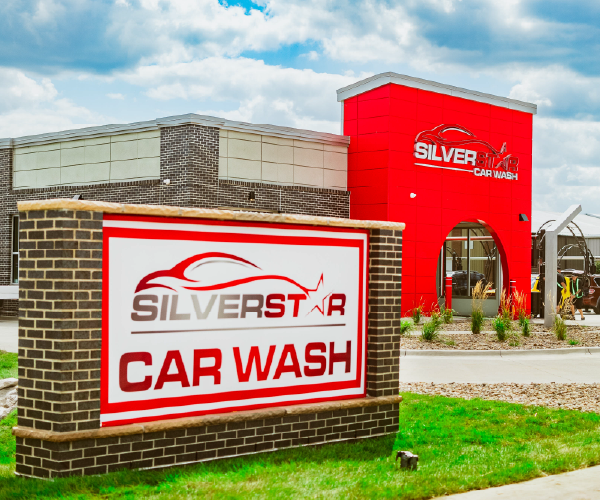
Expanding Conversations to Build Connections
February 22, 2022
7 minute ReadBY TOM GRESHAM
For car wash operators, the experience they provide their customers is viewed against a backdrop that extends far beyond their industry. A customer at a car wash isn’t merely measuring the way they’re treated in the context of other car washes they’ve visited – the landscape is much broader.
“Your competition is Starbucks,” said Jess Pischel, a Customer Service Consultant with The DiJulius Group. “It’s Chick-fil-A. It’s Nordstrom. It’s any other business that a customer experiences. Those are your competitors. You at this point have to be even better than some of those brands because, like it or not, your customers are comparing the service that they receive from you with all the other brands that they do business with. So it’s harder than ever now to really stand out.”
Customer experience experts say the way to thrive in such an environment is through a concerted effort to connect with customers on a level that is deeper than the basics of a transaction. That means learning to recognize the key characteristics of customers, build authentic conversations with them and develop personal connections that help forge a lasting bond.
In order to do that, Bob Phibbs, CEO of The Retail Doctor, said organizations need to develop employees “who can think on their feet and who don’t sound like robots” – employees who strive to do more than the bare minimum in customer interactions, leading not only to upselling customers but to bringing them back in the future.
“It’s got to be more than the basic, ‘Oh, do you want fries with that?’” Phibbs said. “You really want them to be able to actually converse with somebody and become more human in an increasingly technological world.”
The risks of failing short of expectations are evident, said Shep Hyken, a customer service and experience consultant.
“We’re in an environment where customers will switch faster than ever if they don’t think they’re getting the attention they deserve,” Hyken said.
SEEK RAPPORT
Pischel said most customers are open to engaging in conversations in a sales environment, partly because “every customer wants to feel like they’re your most important customer.” The goal is rapport.
“Everyone wants to feel special, and most people love to talk about themselves,” Pischel said. “You always have the introvert that doesn’t want to talk and maybe they’re giving those signals with body language or looking at their phone or avoiding eye contact, but I believe the general crowd wants to be engaged with.”
In order for employees to understand how to interact with each unique customer in the moment, Hyken said an organization must first establish a foundation of consistent messaging that will guide workers in their customer interactions and reflect a desire to offer customers a distinctive experience.
“Leadership has to decide what that customer experience should be, and then it needs to be communicated to everyone,” Hyken said. “You’ve got to put signs up and constantly put it in front of people … and you need to train people to it.”
With that foundation in place, Hyken said, employees can start to seek individual opportunities to connect.
RECOGNIZING CONVERSATIONAL OPPORTUNITIES
Pischel said those in front-line sales positions do not need to make extensive judgments about a customer’s personality to connect with them but instead can look for opportunities to use simple conversational building blocks to encourage customers to talk about themselves. Pischel said workers should be trained in “safe” personal categories to discuss with customers – The DiJulius Group favors the acronym FORD (Family, Occupation, Recreation, Dreams) – and to stick to those.
Pischel, who notes politics and religion typically should be avoided, said workers shouldn’t blindly bring up personal topics out of the blue and risk awkwardness. Prompts to ask about fertile topics are usually already available to them, though employees don’t always recognize it. “Information is all around them,” she said. When a customer volunteers something about their life in passing – a children’s soccer game later that day, for instance – it should inspire follow-up questions, she said.
“If they brought it up, it’s obviously something they’re willing to talk about,” Pischel said. “So much of building rapport is about listening to those cues in conversation and letting them evolve organically.”
There’s also non-verbal information readily available at a car wash because of the nature of personal vehicles, Pischel said. She points to bumper stickers, car seats, a soccer ball rolling around and the radio station as small details that can lead to non-invasive questions to build a conversation.
“There’s so much bonding opportunity there,” Pischel said.
Pischel said questions should be open-ended, steering away from “Yes” or “No” answers that cut conversations dead.
“You have to be comfortable asking those types of questions and that means being vulnerable yourself, but you also can’t come off as a creepy stalker that you want to know all that information, right?” Pischel said. “It has to happen organically.”
CONVERTING TO SALES
The more that front-line employees can develop personal relationships with customers the better they can sell to them – and help them to purchase the product or service that is best for them.
“If you get them to like you enough to lower their guard and trust you, then you will discover that you will better understand what it is that they’ve come in for and then give them the best alternatives, something maybe better than they thought they were looking for,” Phibbs said. “They’re not going to get that, though, if you can’t get them to put that smartphone down for a few minutes and see what else there is to offer.”
Ultimately, Hyken said it’s not enough for front-line employees to understand how to sell to someone – they have to understand how to sell the right product or service to the right customer. It’s intuitive that upselling a customer something that is right for them is good service, while selling someone something that isn’t right for them is bad service, he said. It doesn’t end there, though. Hyken said allowing a customer to spend less when spending more would be better for their needs also means a business is falling short for their customers.
“If they need it and you don’t try to sell it to them, that’s bad service, too,” Hyken said.
TRAINING
Without training, employees will never connect with customers in a way that leads to sales and long-term relationships, Phibbs said.
“If they haven’t been trained with it, they’re going to default to nothing more than, ‘Can I help you find something?’ or to playing on their phone,” Phibbs said.
Hyken said personality profiles can help employers with both training and determining a fit for a worker within an organization, though it’s far from a guarantee. Rather than Meyers-Briggs – which he said is more deeply detailed than typically is necessary – he points to the DiSC (Dominance, Influence, Steadiness, Consciousness) system as a good “predictive index” for an industry such as car wash operations. The Harrison Assessments are a viable option as well. Hyken said identifying worker personality types can be helpful to projecting whether an employee is a strong fit for a long-term position in front-line sales.
“If you want somebody to sell, you can’t have somebody that’s ultra-introverted on the front line,” Hyken said. “Because even though they might be able to fake it for a short time, they’re not going to be able to in the long term. They’ll be too unhappy. It won’t take that long before you say, ‘Wow, they’re imploding on me. They’re stressed out, they’re not happy, they’re quitting.’”
Employees can train to forge stronger connections with customers by first building those relationships with internal team members through role-playing. After practicing internally, Pischel said, “you’re more comfortable with it, and you become willing to ask those open-ended questions of customers and be vulnerable in the moment.”
Every workplace is different, and that makes it essential for teams to workshop questions and common scenarios together.
“There’s not one answer for every company,” Pischel said. “It’s different because every company has different customers, different personas, different personalities.”
Phibbs said too often organizations treat training as a one-time event instead of an ongoing process. He said that approach can lead employees to eventually return to “sleep mode,” going through the motions of transactions and the workday.
“Training is something you do – it shouldn’t be something you did,” Phibbs said. “We have to get out of this idea that somebody is ‘trained’ and therefore they don’t need to learn anymore.”
For those operations willing to take the necessary steps to develop employees who can connect with customers, the benefits can be enduring, Pischel said.
“This is a great way to stand out,” she said. “Not all companies are doing this. Not all companies are focusing on how to provide better customer experience. Most companies essentially are focused on the bottom line and less on people and relationships. So I think it’s a huge area of opportunity for most businesses right now.”







